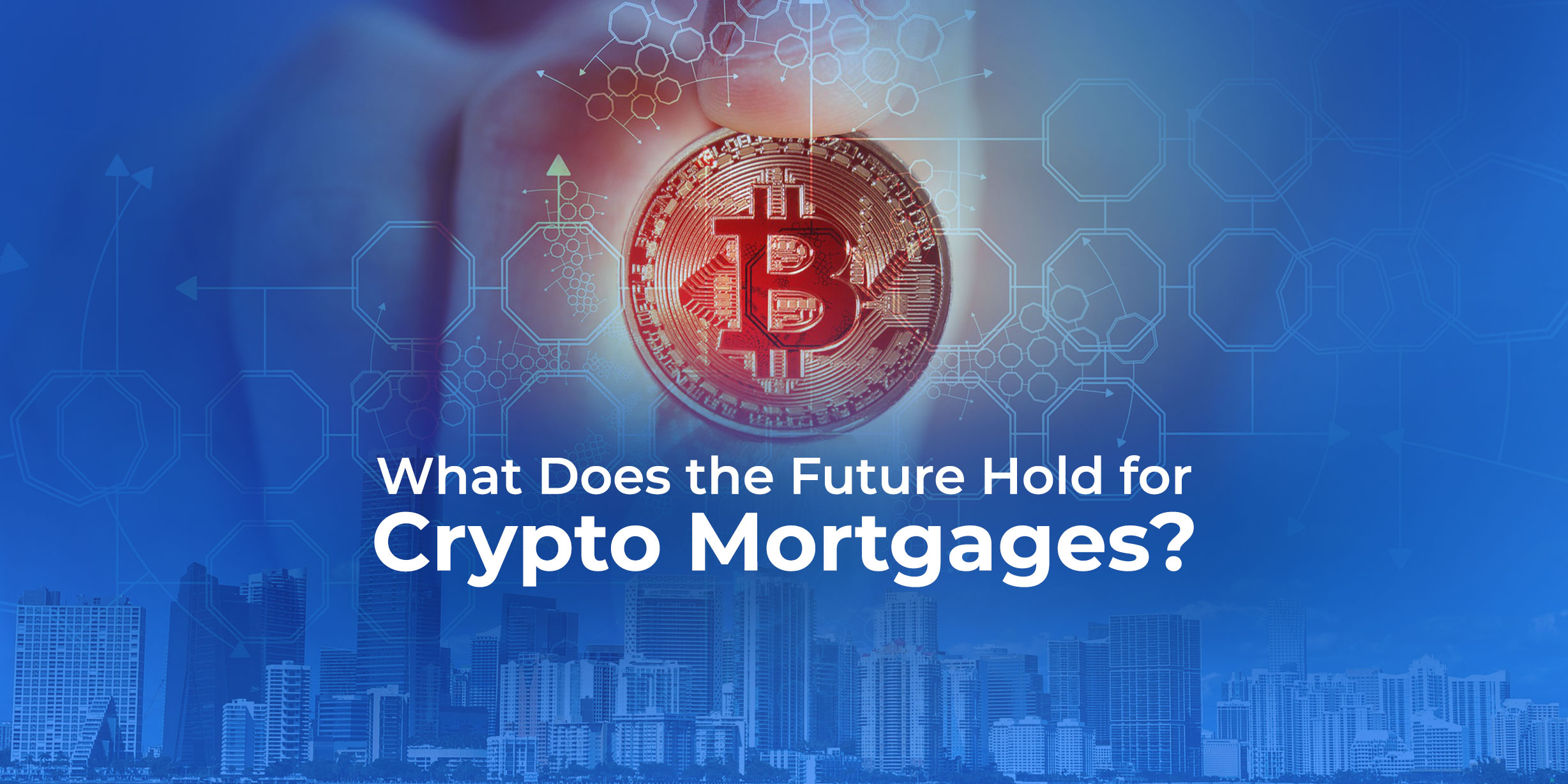Today, a significant portion of the world’s wealth is held in the form of cryptocurrency. There were over 300 million crypto users worldwide in 2021, a number that’s constantly growing. Interestingly, holders of cryptocurrency tend to be well-educated, high-net-worth individuals. 36% have an annual income of over $100,000, and 82% have a Bachelor’s degree or higher.
In other words, they are the perfect audience for a home mortgage – but unfortunately, their crypto assets are often the very reason for disqualification. That is why crypto mortgages could make a big difference, opening up new modes of home ownership to a new borrower base.
How Does a Crypto Mortgage Work?
The easiest way for a crypto owner to buy a house is probably to liquidate their crypto assets. However, this has several drawbacks. Given market conditions, most investors are bullish and unwilling to sell crypto until they can unlock long-term gains. Crypto sales also attract a sizable amount in taxes, taking away from the total asset value.
A crypto mortgage, on the other hand, provides borrowers with an opportunity to put up cryptocurrencies like bitcoin as collateral. They may then make monthly payments in crypto, or switch to fiat currencies as applicable. In case there is a default scenario, the lender stands to gain from the higher market value of the crypto assets (put up as collaterals) accrued by that time.
Crypto mortgage facilities are still hard to come by, but a few US players are now opening up the idea. For example, USDC.Homes allow homeowners in the US to place cryptocurrencies as collateral when borrowing up to $5 million. The down payment is also “staked” or deposited in a high-yield account to earn a passive income that partially offsets monthly mortgage payments.
Milo is another notable lender, and among the first to offer zero down payment crypto mortgages to homeowners across the US. Ledn in Canada is another example. Yet, traditional lenders and banking institutions shy away from crypto mortgages, causing growth to be slow.
What Are the Potential Challenges of a Crypto Mortgage?
Ostensibly, the main reason to refuse crypto mortgages is the risk involved. A volatile and unpredictable market could theoretically cause the value of crypto collaterals to plummet at any given time. However, this can be offset by charging a higher interest rate, and indeed, by the general financial well-being of borrowers who hold their wealth in crypto.
A bigger problem is the digital maturity required to support crypto mortgages. “Integrating the legacy mortgage system with the new crypto environment is an operational nightmare,” mentioned technology lawyer Lorenzo Delzoppo, who is helping cryptofinance company XBTO build a mortgage product.
Mortgage systems still rely on data stored across silos, platforms hosted in different environments, and stakeholders in different organizations to process an application. On average, a single application takes between $7,000 and $9,000 to process. Given the nature of existing systems, it is extremely difficult to connect decentralized crypto platforms and crypto management tools.
It also calls for a different approach to risk management and underwriting. Crypto owners may be high-risk individuals as per a traditional definition, but they are often more financially solvent than average homebuyers.
What Does the Future Hold for Crypto Mortgages?
Crypto mortgages are a new product, becoming popular in Q1 of 2022, with Milo coming out of stealth and raising $17 million in Series A. Most industry experts agree that demand for crypto mortgages is rare – but those who choose to buy houses by liquidating or placing their crypto assets as collateral tend to invest in high-value homes. They are also open to more elastic interest rates. These two factors together can make crypto mortgages worth the effort.
For now, individuals who want to avail of this facility must demonstrate collateral value equivalent to the loan required. In other words, a $1 million home needs $1 million in crypto as collateral. This locks a sizable portion of the populace out of the mortgage sector since one must already have the “wealth” at hand.
Interestingly, this is precisely what could make crypto mortgages a profitable venture for lenders, and the reason why it may ultimately catch on.
Also read: How Will the Metaverse Affect the Banking Industry?
Preparing for Crypto Mortgages in 2022
Eventually, traditional lenders and banking institutions must prepare for a future shaped by crypto. Even if customers do not opt for a 100% crypto mortgage, mortgage payments via Bitcoin, Ether, and other cryptocurrencies could become commonplace.
At its core, one must revisit the definition and parameters of risk in real estate ownership to accommodate and gain from borrowers holding digital assets. All of this begins with a string digital bedrock that can adapt to the needs and configurations of decentralized systems, crypto wallets, and the elevated CX expectations of digital asset-owning borrowers.
Already, crypto mortgage firms like Milo, promise a closing time of 2-3 weeks, compared to > 45 days for a traditional mortgage. A focus on efficiency and digitally powered services must therefore be at the heart of the transformation. At Nexval, our team of 1,000+ subject matter experts partners with US mortgage businesses on the adoption of this disruptive technology.
Are you planning to usher in the future of mortgage with crypto, blockchain, and decentralized platforms like the metaverse? Learn how, from our Tech Gurus.



